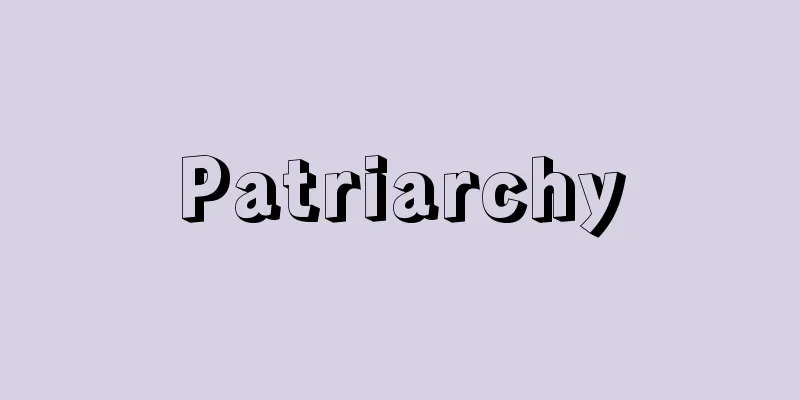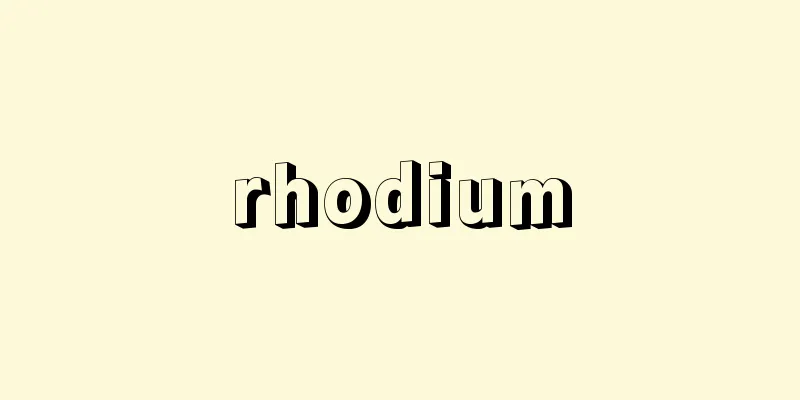Patriarchy

|
It refers to a social system that consists of a series of characteristics of father-child relationships, such as patrilineal marriage, patrilineage, and patriarchy. J. Bachofen presented an evolutionary diagram in which patriarchy came after matriarchy, but N. Coulanges, on the other hand, believed that the laws and systems of ancient states were based on clan-like blood-related groups, and that the source of the patriarchal authority that governed them was the family religion that protected the family sacred fire and ancestral spirits, and that the perpetual authority of the patriarchy as priests and chiefs was the most primitive system. On the other hand, W. Schmidt believes that matriarchy and patriarchy were not formed in the initial stages of cultural history, and that in the first stage when livestock breeding and plowing were practiced, men's status became dominant, while women were subordinated, and elements of trade marriage and respect for virginity became prominent, and a large family-based military ruling organization based on patriarchy was established. He further believes that exogamous patriarchy accompanied by clan exogamy and totemism, and hierarchical free patriarchy with absolute chiefdom and slavery developed. However, compared to matriarchy, the issue of patriarchy is not as clear, and today it is treated as a matter of the father's authority in a patrilineal society. In Japan, the term patriarchy is often used to refer to the family system under the Meiji Civil Code. Source: Encyclopaedia Britannica Concise Encyclopedia About Encyclopaedia Britannica Concise Encyclopedia Information |
|
夫方居住婚,父系制,家父長制という父子関係の一連の特徴から成り立っている社会体制をいう。 J.バハオーフェンは,母権制のあとに父権制が到来するという進化論的図式を示したが,これに対して N.クーランジュは,古代国家の法律,制度は,その基盤が氏族的血縁集団にあり,家族の聖火を守り祖霊を守る家族宗教が,これを司る家父長的権威の源泉であるとし,このような祭司,首長たる父権の永久の権威は最も原始的な制度であると考えた。一方,W.シュミットは,文化史の原段階において母権や父権は形成されず,家畜飼育や鋤耕が行われた第1段階において男性の地位は優勢となり,一方女性は隷属し,売買婚や処女性尊重の要素が顕著となって,父権制を基盤とした大家族的軍事支配組織が確立されたのであり,さらに氏族外婚,トーテミズムを伴う外婚的父権制や絶対的首長権と奴隷などの身分階層的な自由父権制などが発展したものと考えた。しかし母権制に比べて父権制の問題は明確ではなく,現在ではむしろ父系制社会における父の権威の問題として処理されている。日本では明治民法下の家制度をさして家父長制という言葉が用いられることが多い。
出典 ブリタニカ国際大百科事典 小項目事典ブリタニカ国際大百科事典 小項目事典について 情報 |
<<: Prefectural system - prefecture system
>>: Prefectural shrine - Fukensha
Recommend
Sauce béchamel (English spelling)
… [French cuisine] The following eight types of s...
reduction
...In the narrow sense, oxidation is when a subst...
Zostera japonica (English spelling) Zosterajaponica
… [Takashi Yamashita]. … *Some of the terminology...
Indecent assault - indecent assault
The crime of committing obscene acts against men a...
Screw propeller
…propulsion device that gives thrust to ships and...
Yibin - Gibin
A prefecture-level city in southern Sichuan Provi...
Oriental armyworm moth
This moth belongs to the family Noctuidae in the ...
saṃhitā (English spelling) samhita
…Hermetic Thought [Tadahiro Onuma] [Yoichiro Mura...
Jin-shu; Chin-shu
An official history of the Jin dynasty compiled by...
Social anxiety
A sense of crisis is likely to arise in uncertain ...
Ligase - ligase
A general term for enzymes that catalyze the reac...
JAS - JAS
Japanese Agricultural Standard. Based on the Law C...
Volga-Ural oil fields - Volga-Ural
Located in southwestern Russia, this is one of the...
Round inkstone - Enken
...Korea has not been blessed with superior inkst...
Broken granite (broken granite) - Wariguriishi
Crushed stone with a diameter of about 12 to 20 cm...








![Neisse [river] - Neisse](/upload/images/67cc619182148.webp)
